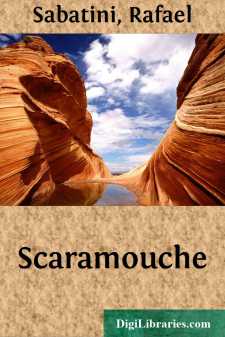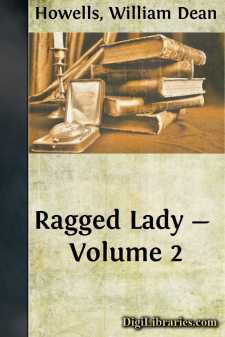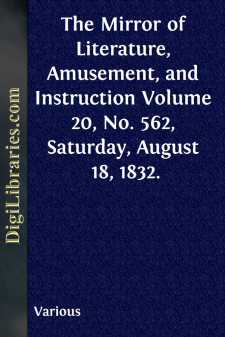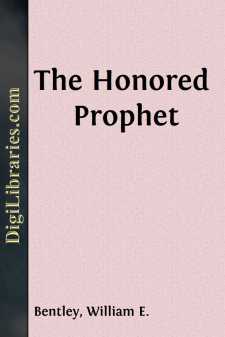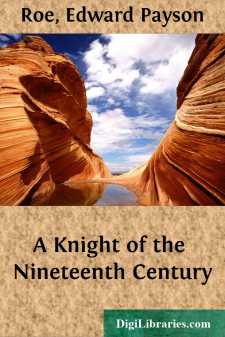Categories
- Antiques & Collectibles 13
- Architecture 36
- Art 48
- Bibles 22
- Biography & Autobiography 813
- Body, Mind & Spirit 142
- Business & Economics 28
- Children's Books 17
- Children's Fiction 14
- Computers 4
- Cooking 94
- Crafts & Hobbies 4
- Drama 346
- Education 46
- Family & Relationships 57
- Fiction 11829
- Games 19
- Gardening 17
- Health & Fitness 34
- History 1377
- House & Home 1
- Humor 147
- Juvenile Fiction 1873
- Juvenile Nonfiction 202
- Language Arts & Disciplines 88
- Law 16
- Literary Collections 686
- Literary Criticism 179
- Mathematics 13
- Medical 41
- Music 40
- Nature 179
- Non-Classifiable 1768
- Performing Arts 7
- Periodicals 1453
- Philosophy 64
- Photography 2
- Poetry 896
- Political Science 203
- Psychology 42
- Reference 154
- Religion 513
- Science 126
- Self-Help 84
- Social Science 81
- Sports & Recreation 34
- Study Aids 3
- Technology & Engineering 59
- Transportation 23
- Travel 463
- True Crime 29
Sort by:
by:
Roy Norton
CHAPTER I If Nature is infallible, there should be some philosophic or eugenic professor arise and explain why she made such a grievous error in the personal appearance, vocal qualities, and general gestures of the learned judge, astute politician and hopeful statesman, Hon. J. Woodworth-Granger and Mr. James Gollop, perigrinating drummer for a chocolate house. Either the Honorable Judge should have...
more...
by:
Rafael Sabatini
CHAPTER I. THE REPUBLICAN He was born with a gift of laughter and a sense that the world was mad. And that was all his patrimony. His very paternity was obscure, although the village of Gavrillac had long since dispelled the cloud of mystery that hung about it. Those simple Brittany folk were not so simple as to be deceived by a pretended relationship which did not even possess the virtue of...
more...
PROLOGUE OF THE CIGAR DIVAN In the city of encounters, the Bagdad of the West, and, to be more precise, on the broad northern pavement of Leicester Square, two young men of five- or six-and-twenty met after years of separation. The first, who was of a very smooth address and clothed in the best fashion, hesitated to recognise the pinched and shabby air of his companion. âWhat!â he cried,...
more...
by:
Matthew Flinders
CHAPTER I. Departure from Port Jackson, with the Lady Nelson.Examination of various parts of the East Coast, from thence to Sandy Cape.Break-sea Spit.Anchorage in Hervey's Bay, where the Lady Nelson joins after a separation.Some account of the inhabitants.Variations of the compass.Run to Bustard Bay.Port Curtis discovered, and examined.Some account of the surrounding country.Arrival in Keppel Bay,...
more...
by:
Bernard Shaw
PREFACE The Admirable Bashville is a product of the British law of copyright. As that law stands at present, the first person who patches up a stage version of a novel, however worthless and absurd that version may be, and has it read by himself and a few confederates to another confederate who has paid for admission in a hall licensed for theatrical performances, secures the stage rights of that...
more...
Mrs. Lander went to a hotel in New York where she had been in the habit of staying with her husband, on their way South or North. The clerk knew her, and shook hands with her across the register, and said she could have her old rooms if she wanted them; the bell-boy who took up their hand-baggage recalled himself to her; the elevator-boy welcomed her with a smile of remembrance. Since she was already...
more...
CHAPTER I. THE ACCIDENT. THE soft twilight of the tropics, that loves to linger over the low latitudes, after the departure of the long summer's day, was breathing in zephyrs of aromatic sweetness over the shores and plains of the beautiful Queen of the Antilles. The noise and bustle of the day had given place to the quiet and gentle influences of the hour; the slave had laid by his implements of...
more...
by:
Various
FALLS OF THE GENESEE. The Genesee is one of the most picturesque rivers of North America. Its name is indeed characteristic: the word Genesee being formed from the Indian for Pleasant Valley, which term is very descriptive of the river and its vicinity. Its falls have not the majestic extent of the Niagara; but their beauty compensates for the absence of such grandeur. The Genesee, the principal...
more...
he ruler of a planet with a black dwarf sun had called a meeting of the council. It was some time before they were assembled, and he waited patiently without thought. When the patchwork of mentalities was complete he allowed the conclusions of the prognosticator to occupy his mind. A wall of unanimous incredulity sprang up. The statement was that when the inhabitants of a distant planet achieved space...
more...
CHAPTER I BAD TRAINING FOR A KNIGHT Egbert Haldane had an enemy who loved him very dearly, and he sincerely returned her affection, as he was in duty bound, since she was his mother. If, inspired by hate and malice, Mrs. Haldane had brooded over but one question at the cradle of her child, How can I most surely destroy this boy? she could scarcely have set about the task more skilfully and...
more...



